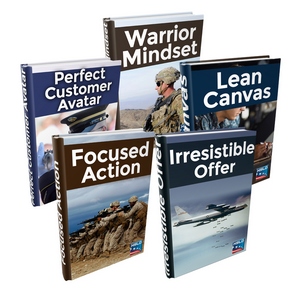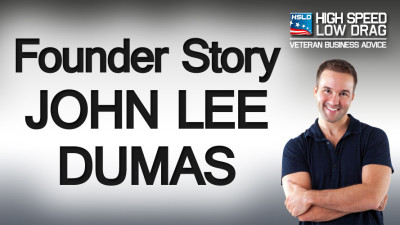 Antonio: All right, High Speed Nation, this is Antonio Centeno, and I’m fired up to bring you our featured guest today who is no other than John Lee Dumas.
Antonio: All right, High Speed Nation, this is Antonio Centeno, and I’m fired up to bring you our featured guest today who is no other than John Lee Dumas.
Now, this is going to be our first interview here with High Speed Low Drag, so this one is a little bit different. Usually, John is going to be doing this part of the interview, but he couldn’t just interview himself so I’m here to step in. But John, are you prepared to ignite?
John: Antonio, let’s burn this place to the ground, my friends.
Antonio: Love it, love it. John, you are the founder and host of EntrepreneurOnFire, and it was awarded The Best of iTunes 2013. I don’t know what happened to you this last year or I don’t know if they’ve released that yet.
John: No, not until 2015.
Antonio: Okay. Yes. Hopefully you get that again. I mean, I’ve been on your show and you interview today’s most inspiring and successful entrepreneurs seven days a week. It was said that wasn’t even possible. Yet, you found a way to make it happen. You’ve been featured in Forbes, Inc., Time Magazine. You’ve really turned EntrepreneurOnFire into a very, very profitable business. I think you’re on a run rate for like two and half million dollars right now.
John: Yes.
Antonio: You’re going to be sharing all the details. You make it all available. Anyone can go there and verify this. That’s why I think it’s so exciting to have you as a founder of High Speed Low Drag is that literally within a very short amount of time, you’ve built a multimillion-dollar business and you’re here to share this with vets around the world.
John: Antonio, I couldn’t be more excited to be chatting today. It’s kind of cool to have the tables turned for this first interview and being the interviewee. But you got it right, my man. From this point forward, I’m going to be the host of High Speed Low Drag where I interview you and then Tom, our other cofounder.
And then we really dive into a weekly interview process where I bring on a great veteran or even somebody in some cases that’s transitioning out and we talk about their journey, their failures, their aha moments, their successes, and everything in between to really give you, the listener, High Speed Nation, some great intel to help you along the path. So, Antonio, I’m just fired up right now.
Antonio: Yeah. Well, one little correction because I still got you for 25 minutes so you don’t get it just yet. But okay, so I’ve given our listeners just a little bit of an overview of you. Now, can you take a minute and tell us more about you personally? We want a little bit to just get to know you. So go ahead and dive in.
John: Yeah. Real quick, I am just a country boy, Antonio, from the state of Maine. I grew up there for the first 18 years of my life, went to college in Providence, Rhode Island on an army ROTC scholarship, graduated in 2002 so I was actually the first round of commissioned officers post 9/11, which was pretty intense. And of course, sure enough, about 14 or 16 months later, I’m in a 13-month tour of duty in Iraq as an armor platoon leader in charge of 4 tanks and 16 men within the 1st Infantry Division out of Fort Riley, Kansas.
That was an intense 13 months for any 2nd lieutenant. Actually, I was promoted to 1st lieutenant during; and then when I finish my active duty requirements, I was a captain when I left and entered the inactive reserves for the following four years.
So I spent 2002 to 2010 as an Army officer. During my four inactive years, from 2006 to 2010, I tried a bunch of different things, Antonio. I tried law school, I hated it and I quit. I tried commercial real estate, corporate finance, you name it. I was trying some different things, really chasing the wrong tree which we can talk about later, really barking up that wrong tree, so to speak.
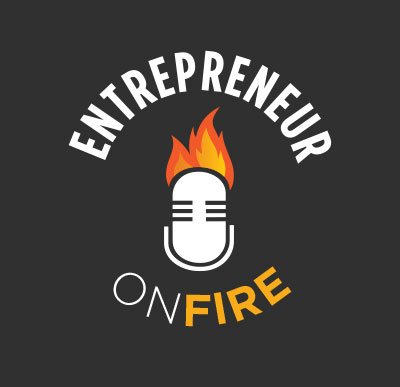 But I did settle upon something that just hit my sweet spot, and really did light that fire within, and that is EntrepreneurOnFire which I launched in September of 2012, a seven-day-a-week podcast that interviews today’s most inspiring and successful entrepreneurs.
But I did settle upon something that just hit my sweet spot, and really did light that fire within, and that is EntrepreneurOnFire which I launched in September of 2012, a seven-day-a-week podcast that interviews today’s most inspiring and successful entrepreneurs.
We’ve done over 8 million downloads to date. We’re averaging northwards of 800,000 unique listeners every single month now and growing, and we’re generating over $200,000 a month in revenue in multiple income streams which we do share at our site eofire.com. So that’s a little bit about me Antonio, and I’m excited to share more.
Antonio: John, can you talk a little bit about all the people that said to you that seven days a week was impossible?
John: Yes, yes. That’s actually a really fascinating question and story because the people that said that to me were people that I should have been listening to. It was my mentor Jaime Tardy who has a very successful podcaster for a number of years when I hired her to mentor me to start my podcasting and entrepreneurial journey, and then was Cliff Ravenscraft who was the Podcast Answer Man and still is the Podcast Answer Man. And he told me that seven days a week wasn’t a great idea for a number of reasons — burnout of both the listener and the host and many other reasons as well.
Now, to really be fair, both of these individuals helped me in countless ways really create EntrepreneurOnFire as a powerful podcast and a powerful business. But in this one area, the frequency, which is how many days I was going to release per week, I was adamant so I put my blinders on, Antonio, and I just focused on what I knew my intuition was telling me was needed, which was a seven-day-a-week podcast. 673 episodes later, I haven’t missed a day, and I don’t foresee that happening till at least episode 1000.
Antonio: I love that because to me it just says my brother is EOD Army, and now in the Marine Corps we only usually deploy for six months. But I know you guys deploy for a year and longer, and it’s not like you get an off day in Afghanistan or you get an off day. I mean you are always there. On off days, you’re sitting in basically your PJs underground, and if you come under fire, you still run up and throw your gear on and you’re there to return fire because the enemy doesn’t give it to you. I just love how that mentality enabled you to go someplace that no one had gone before on a podcast.
John: To go where no man has gone before, going back to the Star Trek days. It’s so true. I knew I could do it, Antonio, if I just set up the right disciplined schedule as I had to do myself as a platoon leader back in Iraq when we were doing the seven-day-a-week schedule. So I knew I can handle it. I knew that it was all about planning and executing that plan, so here I am today.
Antonio: Yeah. So let’s talk about that. Let’s talk about your military experience, the pivotal moment. Was there one in your military experience?
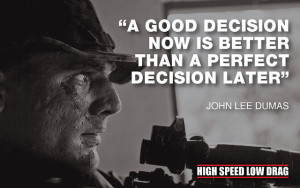 John: There was a pivotal moment, and I will say that this is pretty powerful because it came from my platoon sergeant, and it’s actually a quote that I’ve been really using throughout the rest of my life from that point forward. It’s a quote actually that he pulled from Patton, and it’s just part of common knowledge in a lot of ways. But what’s really uncommon often is common knowledge, and so that was for me as a second lieutenant, back in Iraq in 2003, it was that night ops mission. We went out with our four tanks and 16 men, and it was our job to do this certain task to cordon off this area.
John: There was a pivotal moment, and I will say that this is pretty powerful because it came from my platoon sergeant, and it’s actually a quote that I’ve been really using throughout the rest of my life from that point forward. It’s a quote actually that he pulled from Patton, and it’s just part of common knowledge in a lot of ways. But what’s really uncommon often is common knowledge, and so that was for me as a second lieutenant, back in Iraq in 2003, it was that night ops mission. We went out with our four tanks and 16 men, and it was our job to do this certain task to cordon off this area.
But, of course, all best laid plans go to waste when that first bullet is fired and there were bullets everywhere, mortar rounds everywhere, explosions, RPG, you name it. It was mayhem. And here I was, a 23-year-old lieutenant trying to be Patton himself, trying to come up with that perfect plan, that great idea that was just going to win the war for us.
That was what I was thinking. I’m like, “This is going to be amazing.” And then my platoon sergeant grasps me, he looks to me, and he says, “Lieutenant, a good plan now is better than a great plan later. Do something.” And he just kind of shook me out of it. Here I was, bullets were flying, my platoon was in danger, and I was trying to come up with a great plan that maybe in garrison would work but not when real bullets are flying in a real war, and that was a situation that I was in.
So I snapped out of it and I said, “You know what, platoon sergeant, you’re right. Let’s do XYZ, execute.” And we draw forward, and we made it happen. I woke up the next morning and I was thinking about that, and I said my first responsibility is to take action and to protect these soldiers in my platoon. This is my family. This is my responsibility.
So from that day forward, I was always focused on coming up with a good plan fast and acting upon it and not waiting for that great plan. I’ve really just taken that mentality and applied it to everything else I’ve done in life. And specifically, Antonio, I applied it to EntrepreneurOnFire. If I had waited until I was a great podcast host, if I had waited until everything was ready for me to launch my podcast, if I had waited until I had the skills that I thought I needed, I never ever would have launched, and I never would have built what I’ve now built today, which is a multimillion-dollar revenue-generating business on an annual basis.
But I did launch with a good plan, I did launch with okay skills and I did just take action and then improved upon that every single day.
That great quote to kind of end this little rant with is “If you want to be, do.” I was never going to be a great podcast host until I started being a good podcast host. And I did that seven days a week, got a little bit better every single day. Here I am, having been awarded Best of iTunes 2013 and hopefully once again in 2014 if the iTunes gods are willing. We’ll find out in early 2015. But that was my most pivotal moment, Antonio, and that’s something I’ve taken with me throughout everything I’ve done in from my life that point forward.
Antonio: You’re a sergeant. Was it a staff sergeant, you said or was it??
John: First class.
Antonio: First class.
John: E-7 in the Army.
Antonio: E-7. You know I love how you quoted Patton. He just reminds me of? Another quote from Patton is “No good decision was ever made in a swivel chair,” unless I guess you’re a podcaster and then you are working out of a swivel chair.
John: I’m at a standing desk though.
Antonio: You’re the standing desk.
John: Yes.
Antonio: That’s right, I saw that standing desk.
So you transitioned out and what was your transition like leaving the military?
John: It was brutal. We touched upon this a little bit in our first episode, Antonio. But for me it was different than for some. I’m going to get into a little more detail here because for me, I knew what my plan was. I thought I had everything mapped out. Here I am, this 26-year old with some money in the bank. I’m like my father is a lawyer, he is making a great living, law would be a great profession for me to move into. I’m going from a war-decorated officer into law school. That’s a natural transition. It kind of fed my ego a little bit. It fed my pride. So I was really into that.
So I applied to law school. I got accepted for the following. A year away I was going to actually get in there. So I knew for the next 9 or 10 months after my transition I was going to travel.
So my transition was a little more lax than some peoples are who had for whatever reasons — because they have a family, because they’re living paycheck to paycheck — any number of things, they had to jump right into that JOB, whatever that might be. I didn’t have to.
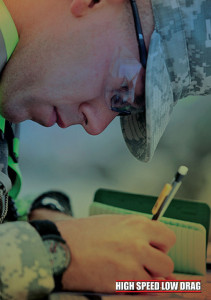 So I still decided to take it seriously though and I went through the Army TAP program, which is the Transition Assistance Program, and it was just sorely lacking on so many reasons. They open up this drawer, this crusty old sergeant and he says, “Grab some resumes and go through them. You’ll find your perfect match.” And I’m going through these resumes by majors, by lieutenant colonels, by lieutenants, by captains, by E-7s, by specialists; and I’m like, “What is this?” Some of them are handwritten. Some of them are literally typewriter. I mean the old-school typewriter.
So I still decided to take it seriously though and I went through the Army TAP program, which is the Transition Assistance Program, and it was just sorely lacking on so many reasons. They open up this drawer, this crusty old sergeant and he says, “Grab some resumes and go through them. You’ll find your perfect match.” And I’m going through these resumes by majors, by lieutenant colonels, by lieutenants, by captains, by E-7s, by specialists; and I’m like, “What is this?” Some of them are handwritten. Some of them are literally typewriter. I mean the old-school typewriter.
And I’m like this is a joke. I sat down and had a conversation with somebody that had never been in the civilian world. It was just somebody that was a lifer and he is trying to tell me about what I should be doing when I get into the civilian world, although he had zero experience with it.
We had this job fair day where, as Tom mentioned, I had the exact same experience. It was like trucking companies, and logistical companies and some pipe companies and taxes, and I was just like what is going on here. None of these jobs even look halfway appealing. Fortunately for me, I’ve got it all figured out. I’m going to law school.
So I get out, I travel the world, I go to Guatemala for four months, India, Nepal, just really get out there, spread my wings, have some fun, grow a beard, do whatever. And I come back and hey, now it’s time for law school. Like let’s do this. My life is about to begin.
First day of law school, think again, John. This was the worse experience that I could have ever imagined. I don’t know what I was thinking I think the reality is, Antonio. Unfortunately, I never thought about it. Because if I would have actually sat down and thought about me in law school, maybe even like read like one book on law, I would have known immediately that I was making a horrible decision. But I knew that if I could just push it out there like say, “Hey, a year from now I’d go to law school,” that would just be an easy thing to say. But I hated law school from day one and I quit at the end of that first semester never to return.
And there I was now. Now I was actually that little baby chickadee in the civilian world with no nest, with no mother, with no safety net. And I was like, “What now?”
Antonio: Why did you hate law school?
John: Just a number of reasons. It just wasn’t me, Antonio. It’s hard to explain why. But having to read through old case studies and come up with a reason why the person was innocent or guilty. There’s a variety of courses, there’s contracts, there’s civil procedures, there’s? you name it.
And just to me, it was mind-numbing, and I’m like I cannot see myself doing this for the next 40 years of my life. It was very obviously. My father was a lawyer so I knew that he was doing this kind of stuff. He was still pulling these books off the shelves and trying to find past case law that applied to his current client. I’m just like, “Ugh, this just isn’t me.”
Antonio: Looking at all that, what was the one clear lesson that you took away from your transition experience?
John: So there were a lot of lessons that I took, but the number one that I want to focus on is my lack of preparation. If I could turn back the clocks, I would say, “Preparation is what I should have done.” What I should have been doing, Antonio, was looking at people out there in the civilian world, veterans and nonveterans alike, who were where I wanted to be, who were doing things that actually fired me up and inspired me and then just finding out how can I learn from this people? Can I go see them speak at a conference? Can I subscribe to their newsletter? Can I get on their blogs Can I listen to their podcast? Can I go to them and say, “Can I be an apprentice?” Like “How I can I add value to you? Can you recommend one of peers who maybe is less busy and less successful that can allow me to be an apprentice if you just don’t have the time or the bandwidth for that?” I wish I kind of turned into that direction. But I was 26, I was clueless, I didn’t know what was going on, and I learned the hard way.
Antonio: What do you consider your first real civilian gig? Maybe not the ones that you quit, really quit, but like your first one that you actually learned about what it’s like to work out in the civilian world?
John: Definitely with John Hancock. So let’s fast forward to like 2008. So it’s like a year and a half out of the military. I spent my nine months traveling. I spent my six months in law school which I then quit. And then now I’m in the civilian world and I get a job at John Hancock in corporate finance. I’m going there. I bought a condo in Boston like I thought that this was it. I am going to work every single day, in a suit, in a tie, its corporate finance, I’m doing my thing.
Antonio, for 18 months, I’m really successful at this. I rise to the top of my little niche within this corporate financing. I immediately get the number one outside sales guy to be the inside guy for. I’m making really good money. I’m breaking six figures. I’m doing some really cool things, and a lot of people are saying, “Wow, John, if you give a presentation on how you’re able to make 100 phones calls a day when before you came here the average was 65 and we thought that was like four-minute mile that nobody could break over it.”
Everybody was just pointing to my military experience as like the reason I was able to come in, be focused, disciplined, regimented, and then just crush it. A lot of that was true.
So I was able to use a lot of the Parkinson’s Law, tasks will expand to the time that you allot them. I was able to use a lot of discipline. I was able to use a lot of like a regimented focus to really crush this corporate job. For a year and half it was great, Antonio. I enjoyed it on a lot of levels. I was promoted very heavily. I was making very good money.
But then the economic crisis happened and all of a sudden we walked into work one day and we went from 200 employees in my division to 70. Now, I was one of the people that made that cut because I was at the top of my game, and I was one of the last people that they would have let go. But that day, the guy that runs our division gets up on a podium and says, “If you are not with us 100%, walk out this door today because you’re here because we want you and we are only going to make it through with people that want us too.”
And I looked around and I said, “I don’t want to be here.” So I printed out my letter of resignation that day which shocked him. He thought he was just giving some hurrah speech. But actually, I walked out the door that day despite a 30% offer an increase in salary which when you’re making six figures is a pretty descend chunk of change. I walked out with no job lined up, with nothing, and I was just on my merry way.
Antonio: That was a huge decision. I mean did you have an aha moment?
John: I had an aha moment at that moment in time, and it wasn’t my overall aha moment, but my aha moment there was I’ve seen what it looks like for men to lose their lives, soldiers in my platoon. I lost four people, men, within my platoon in the 13 months I was deployed to Iraq, so my responsibility, my family, my failure, my weight to carry, my burden for life, and I saw that.
But one pledge that I did make, when I had to stand over those graves and salute, was that I was never going to settle for something less than what my authentic passion in life was. I was not going to settle for some average life because they were robbed of theirs. That courage to quit gave me the courage to quit law school, gave me the courage to quit John Hancock and corporate finance despite everything, and it gave me the courage to continue to quit until I did have my actual aha moment, until I did actually find that inspiration.
Antonio: And so what was that aha moment then?
John: Fast-forward again about four years later, I’m trying different jobs and I’m struggling because I’m just not finding my thing. And luckily though, despite the fact that I’m not finding my thing, I’m still feeding my head with all the right things. I’m reading all the books; I’m listening to all the podcasts.
But the consistent thing is especially when I’m in cars driving to work stuck in traffic is I keep running out of podcasts. I keep running out of episodes to listen to because everybody is doing a weekly show. And I had to keep saying to myself where is that seven-day-a-week podcast that’s interviewing successful entrepreneurs and sharing their journey? Because I need to hear these journeys so that I can have my aha moment, my spark and find my passion with what they’ve done correctly, and eventually be successful and get new cars, as for right now getting a new car is more difficult as I need to get a loan for this. And it didn’t exist, Antonio.
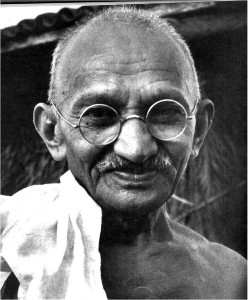 To follow Gandhi’s quote, I decided to be the change I wanted to see in the world. And to me that was to create a seven-day-a-week podcast, which I called EntrepreneurOnFire. And here we are almost 700 episodes later still rocking and rolling. And I took that aha moment, stuck in traffic that one day, into now a business that I am passionate about that’s generating massive revenue and inspiring millions.
To follow Gandhi’s quote, I decided to be the change I wanted to see in the world. And to me that was to create a seven-day-a-week podcast, which I called EntrepreneurOnFire. And here we are almost 700 episodes later still rocking and rolling. And I took that aha moment, stuck in traffic that one day, into now a business that I am passionate about that’s generating massive revenue and inspiring millions.
Antonio: So let’s talk about your current business. I know that we could cover this and go over this quite a bit. So besides throwing keggers in Las Vegas, what is that really excites you about your business?
John: True story, we do throw keggers in Vegas when it comes to New Media Expo which is our major conference here, which we hope many of you that are listening will go to because it is free for veterans to attend, New Media Expo in Las Vegas. And of course we’ll be diving more into that later. But EntrepreneurOnFire’s tagline, Antonio, is to inspire millions. And through EntrepreneurOnFire, we’ve now accumulated over 8 million downloads and growing more every day. We’re listened to in over 145 countries every single day. Just last month we generated over 800,000 unique listens, which is just mindboggling as the podcast continues to grow, and we generate revenue now of over $200,000 a month and growing as we continue to add more revenue streams and grow our audience.
So all of these things excite me in a major way, but what really excites me, the number one thing that excites me is my flagship community Podcasters’ Paradise because this is now a 1200-person community, and growing, of people who are looking to create, grow and monetize their podcast and their passion, whatever that might be. And every single day, Antonio, I go into a private Facebook group and I see another podcast or four more podcasts that have been launched under the Podcasters’ Paradise umbrella because they’ve watched the tutorials, they’ve watched the webinars that we’ve done with Pat Flynn, Michael Hyatt, Amy Porterfield, Rumi Sati. They’ve seen these things, they’ve been inspired by them, and now they’re out there in their niche, in their passions and they’re inspiring others. They are creating content that lights their fire.
And that ripple effect, Antonio, that EntrepreneurOnFire and Podcasters’ Paradise having on the world is what excites me, because now people are launching shows every single day that are reaching audiences that never would have heard of EntrepreneurOnFire, that never would have heard of John Lee Dumas and still may never hear either of those but are being inspired by shows that were inspired originally by me, by EntrepreneurOnFire. And that ripple effect of people changing the world is exactly what excites me the most, and I just can’t get enough of it.
And just like we do live trainings at highspeedelite.com for veterans that are out there that want to learn from what we learned and implement things that we’ve implemented, I do a free live podcast workshop every single week because I have that much fun at podcastersparadise.com and that has me just fired up.
Antonio: I just love that example, everything you just shared. But I’m curious. I mean you were a tanker. How did your experience with an M1 help you in your current role?
John: Yeah, absolutely. There’s a lot of things that I pull out of my military experience and specifically my time as an armor platoon leader and really focusing on what I wanted to pull out of that and drive forward with. And the number one thing by far is realizing what works and then doubling down on it.
There’s a certain way that your men are going to respond to you. There’s a certain strength that your actual platoon is going to grow. And when the bullets start to fly, or in the civilian world, when the crap hits the fan, you want to be doubling down and maximizing what actually works while doing whatever you can to minimize your weaknesses and what doesn’t.
And so that’s what I’ve always learned. I’ve always been able to kind of again focus on what works for EntrepreneurOnFire and cut out all the noise and all the weapons of mass destruction, Antonio, that just exist out there in the world.
Antonio: I like that example. So let’s have some fun. Let’s get into the light things. Are you ready?
John: Yeah, let’s do this.
Antonio: All right. So what was the most difficult adjustment you had to make when you transitioned into the civilian world?
John: People taking things seriously. That was like the most like serious adjustment I had to make was that when you’re an officer and you say something, like people take you seriously. They take you at face value. They know that you mean it and they know they’re going to execute.
And then I just saw that when I was in corporate finance and I was saying something to one of our secretaries, or when I was in commercial real estate calling into our assistance, I just felt like I couldn’t just say something and then just put the phone down and know that it was going to be taken care of. I had to like reserve all this extra bandwidth for follow-up and double-checking and micromanaging and it just was so annoying.
Antonio: Definitely, it’s a huge trust issue. Now, what about business advice that you would pass along to those making the transition now?
John: Don’t be afraid to be an apprentice. If you are able in any capacity to just go to somebody in your industry, in your field, in your niche, in your passion, that’s actually been successful and just say, “How can I be of value to you?” I just want to give you value so that by engaging with you I can learn from what you’re doing and I can just absorb your success. Don’t be afraid to be an apprentice and drive forward.
Antonio: So do you feel as a captain that was hard for you?
John: It was hard for me. It was really hard for me. I thought that I always had to be the one that was coming up with a game plan, that I had to be the one that was making things happen, but be an apprentice.
Antonio: So what is one of your habits that contribute to your current success?
John: Antonio, I have an inkling that you’re going to share the same one in the next episode because both you and I are morning people. And for me, my alarm clock goes off at 5:20 a.m. every single morning. I’m up. I’m exercising. I’m getting fluids in my body. I’m eating right. And then I am carpe diem. I am seizing the day. And typically by 9:00 a.m. I have accomplished more than every single other entrepreneur in the world will do all day, except Antonio of course.
Antonio: That’s true. That’s a fact.
John: That’s a fact.
Antonio: All right. So what is the biggest generalization if any that you had to overcome in the civilian world?
John: There are a lot of generalizations that I face especially when I came in as a war decorated captain into John Hancock, and a lot of people just thought that I had no sense of humor, no personality. They thought that I was just this hard driving, straight talking, no nonsense kind of guy. But, you know, I like to smoke and joke. I like to mess around. I like to throw paper across the room like anybody would. I was kind of consider a little bit of a jokester in college.
That’s kind of something that I felt like I was really kind of discriminated against a little bit where people were kind of looking at me when I would joke around and be like, “Whoa, why are you doing that? Aren’t you just supposed to be like an officer in the Army or something?” And I’d be like, “Well, yeah, but I can still have fun.” And so that’s why like for me breaking free and being able to create my business like my passion EntrepreneurOnFire has really allowed my personality to shine through.
Antonio: Great answer. I like that one. Now, what book would you recommend to our listeners?
 John: The best book that I think so many people can read right now that are starting that transition is called “The Slight Edge” by Jeff Olson. Since this is our show, I’m going to cheat a little bit, Antonio, and I’m going to mention one more because this actually follows this book because Jeff Olson’s mentee was Darren Hardy, who is an incredibly successful entrepreneur who is the founder of Success Magazine. He wrote the book “The Compound Effect” built off “The Slight Edge” principle. So read both “The Slight Edge” and “The Compound Effect.”
John: The best book that I think so many people can read right now that are starting that transition is called “The Slight Edge” by Jeff Olson. Since this is our show, I’m going to cheat a little bit, Antonio, and I’m going to mention one more because this actually follows this book because Jeff Olson’s mentee was Darren Hardy, who is an incredibly successful entrepreneur who is the founder of Success Magazine. He wrote the book “The Compound Effect” built off “The Slight Edge” principle. So read both “The Slight Edge” and “The Compound Effect.”
Antonio: I like it, yeah, and you can do too. I think since we know the guys that run this podcast.
John: Yeah.
Antonio: So imagine you woke up tomorrow morning and it was the day after you would transition to the civilian world. Now, you still have all the experience and knowledge that you currently have. What would you do in the next seven days?
John: I would get on to Google and I would immediately Google which conference somewhere in the world was having a conference in a niche, in an industry that I was passionate about, and for me now that’s obviously entrepreneurship. So I will look at any conference that was happening literally anywhere around the world, and I would find what I would feel like will be the best conference within the next seven days. I would buy a ticket. I would jump on a plane. I would go there and I would go there with just the desire to network. I would be networking with attendees, talking about why they’re there and what they’re doing. I would sit in the front row with those presentations and ask questions and then engage these presenters and speakers afterwards.
I would go to the networking parties at almost every one of these conferences and engage with the presenters there and really ask them questions and maybe even suggest them ways that could give them value. I would be in the game, I would have a blast in this conference, and I would walk away with a network of people that would help me as I start forward.
Antonio: And I love how this is actually what one of our partners Tom did. I mean he was Active Duty Army and he just went to a Seth Godin event that was uncomfortable a bit for him, cost him a bit of money. And he just went up there and said, “Hey, I’m Active Duty Army. I’m just here to learn.”
Well John, thank you for being so inspiring today and honest and open about it. I really do appreciate talking to you. I didn’t realize that you had lost four soldiers over there.
John: Yeah.
Antonio: And I know that it’s just one of the things that is very different from those? when we talk about business as war, I kind of grit my teeth. I’m like no. It’s difficult, yeah, but no one is trying to kill you. You’re not going to walk out of this thing maimed. I really do appreciate that.
But can you give High Speed Nation one parting piece of guidance and then share the best way we can find you?
John: Absolutely, no doubt. So I’m going to start with the best way that you can find me, and that is at eofire.com. That’s where all the magic happens. And of course, if you’re thinking a podcast might be for you, that is absolutely something that helped me along my journey. Come to our free live podcast workshop every single week at podcastersparadise.com.
But the real call to action here and you’ll hear it again during the outro is if what Antonio and I are talking about resonate to you, it’s all about High Speed Elite. This is the community that we’re building for you veterans, those people in the military that are transitioning out. So definitely, definitely check that out. See if it’s for you. It’s a free live training. We’re going to have a lot of fun.
And listen, my parting piece of guidance, again it’s all about starting. Wake up 15 minutes earlier or go to bed 15 minutes later. Spend those 30 minutes you’re now giving yourself every single day and start learning more about topics. Start going to lynda.com, to coursera.com, to udemy.com and taking courses and educating yourselves in these fields and then six months from now and you’ll see after you read “The Compound Effect” what this compound effect of you doing this 30 minutes every day will have on you, giving you that idea, that aha moment of your own, and then the courage to take that leap.
And that is definitely my parting piece of guidance, Antonio.
Antonio: Well, John, thank you. And High Speed Nation, you are the average the five people you spend the most time with. And you’ve been hanging out with John and myself, so keep up the heat.
Now John, again, thank you for being so generous with your time, expertise and experience. High Speed Nation salutes you and we’ll catch you on the flipside. Ignite!
Veterans, your education doesn’t stop here. Go to highspeedelite.com to join the exclusive veterans mastermind that will give you the unfair advantage to succeed in both business and life. We have dozens of training courses, HD videos, a private Facebook group, and the chance to interact daily with John and other successful veteran entrepreneurs every month on live hangouts and webinars.
High Speed Elite is more than a mastermind. It’s your ticket to the land of success.
Are you prepared to ignite? Go to highspeedelite.com today to find out more.
